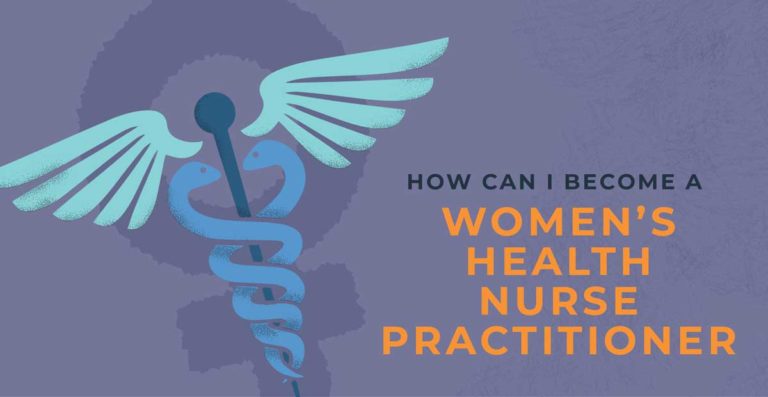Are you wanting to work in women’s health? Women’s Health Nurse Practitioners or WHNPs perform many of the duties of a gynecologist and often provide pre and post-natal care for mothers. They normally perform gynecological exams, prescribe contraceptives, run tests for health conditions and diseases, as well as perform a number of other services. In this article, we’re going to give you the steps to starting a career as a women’s health nurse practitioner.
Become an RN
The first step in this process is to become a Registered Nurse. For this, you typically need to have a Bachelor of Science in Nursing, though you may get away with an Associate’s Degree in Nursing. If you’re still in school now, take classes in women’s health, prenatal development, reproductive health, pharmacology, and maternal care.
All Women’s Health Nurse Practitioners are Registered Nurses, so you need to receive your state’s license to become a registered nurse. In most states, you must pass the NCLEX-RN exam.
Why not go on to graduate school to become a WHNP? This step is necessary because you must be a state licensed registered nurse before you can be admitted to almost all women’s health graduate degree programs.
Gain Experience
Most women’s health programs prefer that you have some experience before they accept you into the program. They typically give priority to those with experience in women’s health nursing, whether you’re working as a nurse in an obstetrician’s office, family planning clinic, mammography center or gynecologist’s office. One to two years of experience is preferred. However, it is still possible to become a WHNP mid-career.
You’ll become a preferred candidate if you’ve worked at least 2,000 hours in an area like obstetrics, reproductive endocrinology or women’s healthcare. You’ll gain extra points for earning certifications by the NCC such as the Ambulatory Women’s Health Care Nurse certification or the Reproductive Endocrinology/Infertility Nurse certification. However, these additional certifications aren’t necessary, simply recommend.
Go Back to School
The Women’s Health Nurse Practitioner’s Certification itself may come from a graduate program or post-graduate certificate. These programs take anywhere from one and a half to three years. You should verify that the school is accredited by the CCNE or ACEN.
If you are an RN with only an associate’s degree, it would be wise to complete an accelerated RN-to-MSN program to prepare you for the women’s health nurse practitioner exam material. To sit for the Women’s Health Care Nurse Practitioner Credential exam, you must complete at least a master’s degree in an educational program for women’s health specific to nursing practitioners.
You should review the school’s data on WHNP certification exam pass rates. This gives you an idea of how well they prepare the average student. Your education will include clinical practicums you must complete in order to graduate.
If you’ve already earned a master’s, post master’s or doctoral degree in some area – including midwifery or neonatal care – you can sit for the exam without returning to school, though review courses of the material would be wise.
Pass the Next Test
WHNP graduates have to sit for the WHNP certification exam in order to be licensed. Board certification exams are offered by groups like the National Certification Corporation (NCC). The NCC offers the Women’s Health Care Nurse Practitioner Credential or WHNP-BC certification.
Depending on where you live, you may have to pass a separate state exam as well. For example, you may have to pass a state exam and receive a license to become a nurse practitioner.
Find a Job
As a Women’s Health Nurse Practitioner, you’re considered on par with most OBGYNs professionally. According to the Bureau of Labor Statistics, Women’s Health Nurse Practitioners have an average salary of between eighty and a hundred thousand dollars. Base pay averages at around 85,000 to 90,000 dollars a year.
Demand for NPs in all areas is growing about three times as fast as the average number of job openings, while demand for WHNPs is going up fivefold for the next ten years. This means the pay can be expected to go up faster than the rate of inflation for years to come as WHNPs fill the estimated 40% shortfall for OBGYNs expected to hit over the next few years. However, WHNPs are not uncommon. An estimated 6% of nurse practitioners work exclusively in women’s health.
Continue Your Education
Certification as a Women’s Health Nurse Practitioner requires at least 45 hours of approved continuing education courses every three years. This is in addition to maintaining your RN license, and that may require separate, additional continuing education hours. The National Association of Nurse Practitioners in Women’s Health’s offers a number of continuing education courses to fulfill these requirements. You may want to join the Nurse Practitioners in Women’s Health (NPWH) and earn continuing education hours through that group, as well.
Women’s Health Nurse Practitioners are at the forefront of women’s healthcare. While there is significant flexibility in their educational and career paths, the future for graduates who’ve earned the necessary advanced degrees and certifications is bright.
Guest Post: Barbara Miller is an aspiring writer who wants to give career advice to anyone struggling to find their path.
